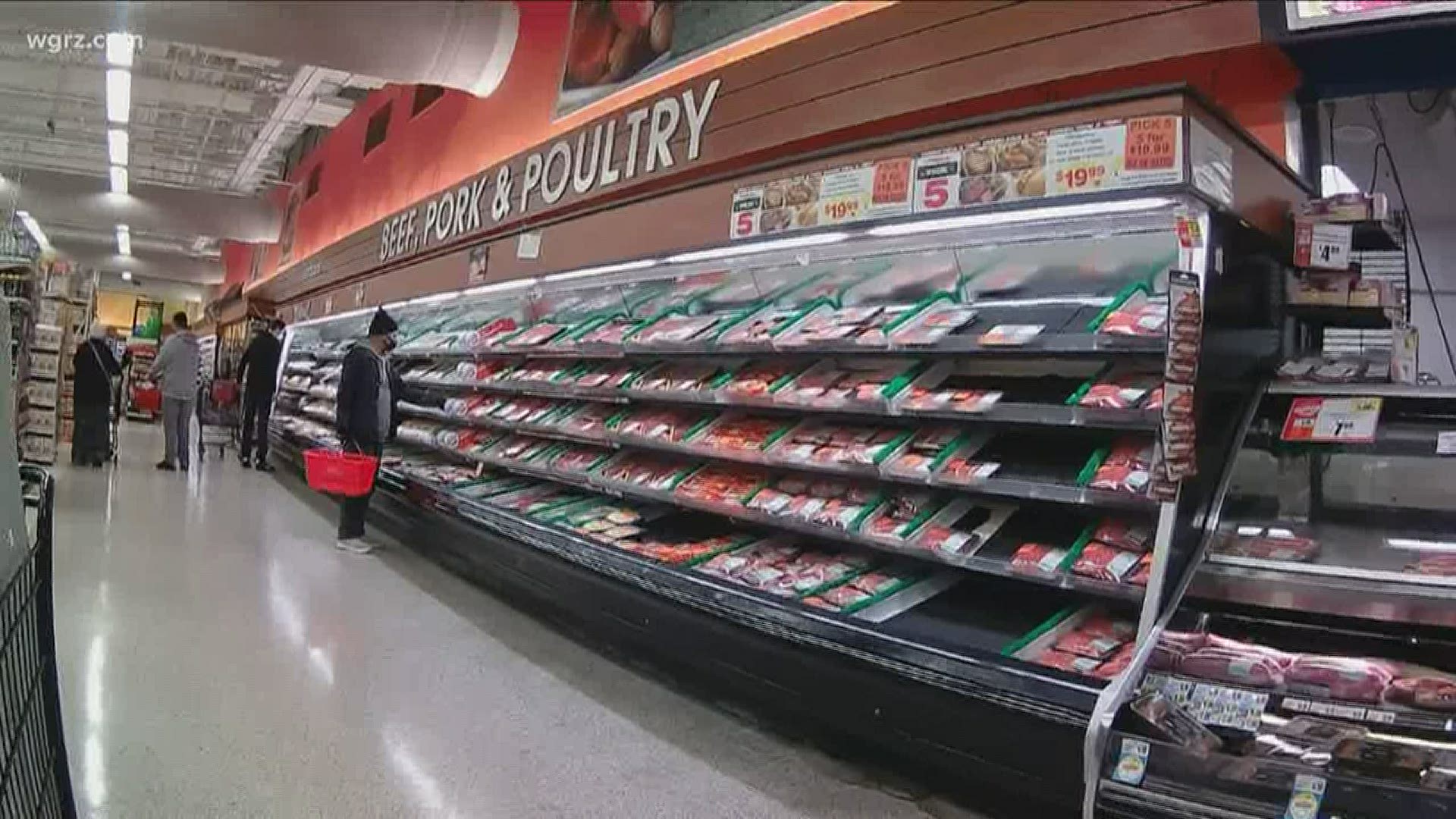BUFFALO, N.Y. — We know a lot of you still have not been able to find certain items at grocery stores and big box stores.
Those items of course vary, certain stores could have items while others don't.
2 On Your Side went to social media and a lot of people tell us they've been trying to find things like cleaning supplies, hand sanitizer and baking goods, with no luck.
We reached out to Tops and Wegmans to see what they are doing in terms of stocking shelves and when scarce items can be expected back in the stores.
Wegmans says merchants are working as fast as possible to get products to stores.
The company also says its Covid-19 response page is updated regularly. And, on that list, you'll see items that are being limited to allow the supply chain to catch up.
Distinguished Professor Nallan Suresh in UB's School of Management, agrees that certain items have become more widespread.
REPORTER: It seems like certain items like toilet paper and bleach it seems like those things are a little more accessible now is that because of ramping up production?
"Ramping up production, and also markets have been rationing supplies like each family is only allowed to buy a certain amount," Suresh said.
According to Tops, that is because suppliers are currently able to fully fill orders and long-term supply is good. Tops says it is working with non-traditional suppliers to try to fill demand. There is still a long list of items that Tops is limiting.
Why are certain items like disinfectant wipes and things like that not around? Suresh reminds us that this is a global pandemic and these items are in high demand around the world and it's still tough to find supplies.
There's been speculation of a meat shortage due to workers at meat plants falling ill to the coronavirus.
Suresh debunked that.
"There's plenty of reserve capacity in the system for the meat processing now. You may not be able to get the exact meat product that we want," he said.
But, Suresh adds that there is a real issue looming for meat plants.
"They've got to find new ways of working whereby the production workers are more separated from each other they need to come up with new conveyor systems all of that has to be done within 2-3 weeks," he said.
If not, we could see higher prices for meat at stores.
We also wanted to get your questions answered.
QUESTION: what percentage of farms, dairy and meat plants, will go out of business if the supply chain is disrupted?
ANSWER: "That could happen only if the processing volumes are cut drastically and I do not anticipate that to happen in a big way," Suresh said.
QUESTION: Why are some producers destroying goods instead of giving surplus to shelters and food banks?
ANSWER: "All those things points to the existing inefficiencies in the supply chain, all the disconnections in the supply chain, whereby they're not able to quickly transport excess food to another point of need," Suresh said.

